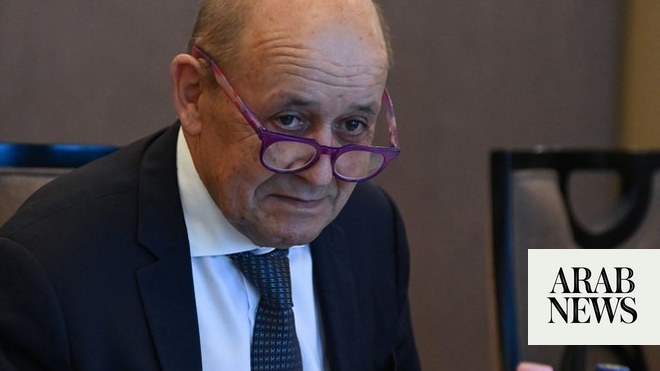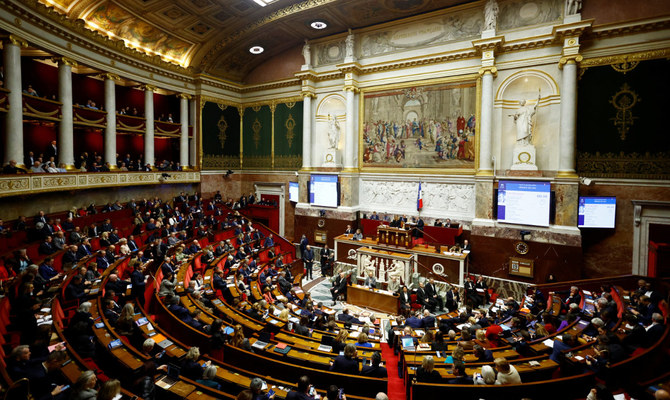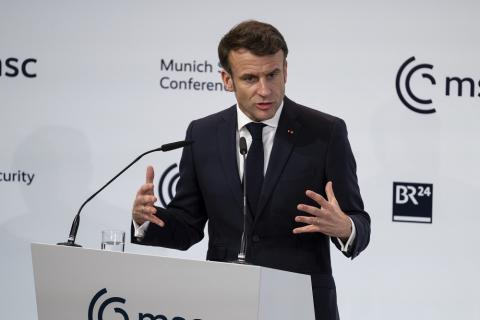
The French president, Emmanuel Macron, has named a new government led by the prime minister, Michel Barnier, marked by a shift to the right 11 weeks after an inconclusive parliamentary election.
The first major task for Barnier, appointed just more than two weeks ago, will be to submit a 2025 budget plan addressing France’s financial situation, which the prime minister this week called “very serious”.
Barnier, a conservative, is best known internationally for leading the EU’s Brexit negotiations with the UK.
Most recently, he has had the difficult job of submitting a cabinet for Macron’s approval that has the best chance of surviving a no-confidence motion in parliament.
Opposition politicians from the left have already said they will challenge the cabinet, announced on Saturday evening, with a no-confidence motion.
In the July election, a leftwing bloc called the New Popular Front (NFP) won the most parliamentary seats of any political bloc, but not enough for an overall majority.
Macron argued that the left would be unable to muster enough support to form a government that would not immediately be brought down in parliament.
He turned instead to Barnier to lead a government drawing mostly on parliamentary support from Macron’s allies, as well as from the conservative republicans (LR) and the centrists groups.
Macron was counting too, on a neutral stance from the far right – but the leader of the National Rally (RN), Jordan Bardella, was quick to condemn the composition of the new government.
It marked “a return to Macronism” and so had “no future whatsoever”, he said on Saturday.
At the other end of the political spectrum, the leftwinger Jean-Luc Mélenchon called the new lineup “a government of the general election losers”.
France, he said, should “get rid” of the government “as soon as possible”.
Among the new faces in key cabinet posts are the foreign minister, Jean-Noël Barrot, a centrist, and the conservative Bruno Retailleau at the interior ministry, whose portfolio covers immigration.
The defence minister, Sébastien Lecornu, a close Macron ally, has stayed in post.
The difficult job of submitting a budget plan to parliament next month falls to the 33-year-old Antoine Armand, the new finance minister. He has previously served as head of parliament’s economic affairs commission.
The centrist and conservative parties will depend on others, and in particular the RN, to stay in power and get bills adopted by a very fractured parliament.
“The centrist government is de facto a minority administration,” Eurointelligence analysts said in a note. Its ministers “will not only have to agree amongst each other but also will need votes from opposition parties for its bills to pass in the assembly. This means offering even more concessions and manoeuvring.”
The RN gave tacit support to Barnier’s premiership, but reserved the right to back out at any point if its concerns over immigration, security and other issues were not met.
“I’m angry to see a government that looks set to recycle all the election losers,” Mathilde Panot, who leads the hard-left LFI group of lawmakers, told TF1 television.
Even before the announcement, thousands of people with left-leaning sympathies took to the streets in Paris, the southern port city of Marseille and elsewhere on Saturday to protest.
They were objecting to a cabinet they say does not reflect the outcome of the parliamentary election.
“I am here because this outcome does not correspond to how people voted,” said Violette Bourguignon, 21, demonstrating in Paris.
“I am worried and I’m angry. What is the point of having an election at all?” she said.












